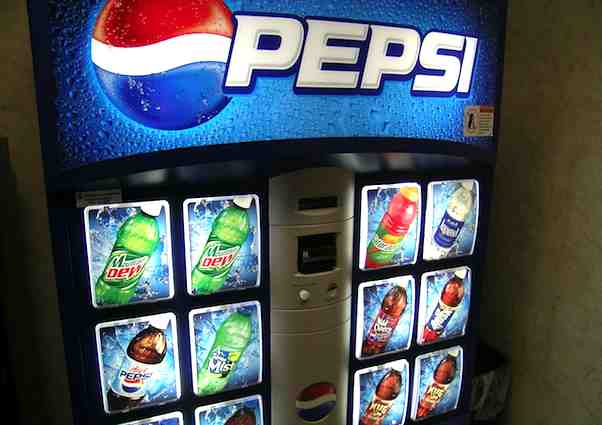
PepsiCo’s organizational culture indicates the company’s commitment to maximizing the strengths of its human resources. This organizational culture defines the traditions, core values, and behaviors involved in workers’ performance. The company’s employees are encouraged to focus on excellence in a collaborative way. Through this corporate culture, PepsiCo continually improves its workforce to sustain its market position. This company culture reinforces the competitive advantages shown in the SWOT analysis of PepsiCo. Optimal business performance in the consumer goods industry is achieved through the company’s organizational culture as a strategic approach to harnessing the strengths of human resources.
PepsiCo’s organizational culture emphasizes taking care of employees and using their capabilities to achieve high business performance. This emphasis links the company’s work culture to business capabilities against The Coca-Cola Company, Unilever, Keurig Dr Pepper, and other competitors. Thus, through human resource management and employee performance, this company culture supports strategies that deal with the competitive pressure described in the Five Forces analysis of PepsiCo.
Features of PepsiCo’s Organizational Culture
PepsiCo adjusts its organizational culture through the years to ensure human resource effectiveness amid industry and market trends. This aspect of the consumer goods business responds to changes in leadership as well as business situations. The following are the main characteristics of PepsiCo’s organizational culture:
- Performance with Purpose
- Real World Leadership
- Collaboration
Performance with Purpose. PepsiCo employees perform with the purpose of achieving excellence for the company, customers, communities, and the planet. This feature of the organizational culture indicates the company’s commitment to fulfill its corporate social responsibilities relevant to the consumer goods industry. In essence, employees are encouraged to address the concerns of PepsiCo’s stakeholders regarding business sustainability and other objectives for ESG and CSR. The most significant impact of this characteristic of the business culture is that it motivates workers to do better. For example, PepsiCo employees are motivated to excel in what they do, and to ensure that their efforts contribute to the improvement of the business and its stakeholders.
Real World Leadership. PepsiCo’s company culture emphasizes leadership based on what employees, investors, customers, and communities really need. The company uses employee knowledge to develop its leadership. PepsiCo promotes employees to leadership positions. With this internal leadership development, the consumer goods company’s organizational culture facilitates the use of employees’ work-based experiential knowledge to fuel business leadership and growth. Employees’ social awareness related to the social trends shown in the PESTEL/PESTLE analysis of PepsiCo also influences the effectiveness of this work culture in supporting the development of leadership that matches social trends affecting consumer preferences in the international market for food and beverage products, such as Pepsi soft drinks. As a result, the process of organizational learning is maintained through this business culture that motivates workers to achieve leadership that drives the organization toward the goals of PepsiCo’s mission statement and vision statement for consumer satisfaction and industry leadership.
Collaboration. Teamwork is an integral part of PepsiCo’s organizational culture. The company believes that collaboration enables the business to achieve excellent performance. While PepsiCo recognizes the strengths of individual employees, its corporate culture sustains the use of these strengths through collaborative efforts. For example, teams are used throughout the organization. Through this work culture, PepsiCo supports synergy in its human resources, instead of just relying on separate individual efforts. The departments and divisions of PepsiCo’s company structure (business structure) provide interconnections among human resources to support this trait of the company culture.
Advantages & Disadvantages of PepsiCo’s Culture
PepsiCo’s organizational culture has the advantage of motivating employees through purposeful action. Also, the cultural support for internal leadership development gives meaning to employees’ contributions to the snacks and drinks business. In addition, collaboration optimizes employee morale, which reduces employee turnover rates and improves talent retention in the consumer goods business organization. However, a disadvantage of PepsiCo’s organizational culture is that it has limited support for autonomy and individual flexibility, which partly determine employee morale, motivation, and performance. While PepsiCo recognizes the importance of task delegation, its organizational culture does not specifically include autonomy or individual flexibility.
References
- Nainggolan, T. M. N. (2024). Analysis of factors affecting organizational work culture in companies. The American Journal of Interdisciplinary Innovations and Research, 101-107.
- PepsiCo, Inc. – Diversity, Equity & Inclusion.
- PepsiCo, Inc. – Employee Engagement.
- PepsiCo, Inc. – Form 10-K.
- PepsiCo, Inc. – Global Code of Conduct.
- Todorova, T. (2024). Corporate culture and corporate strategy: Some economic aspects of the modern organisation. International Journal of Business Performance Management, 25(1), 147-158.